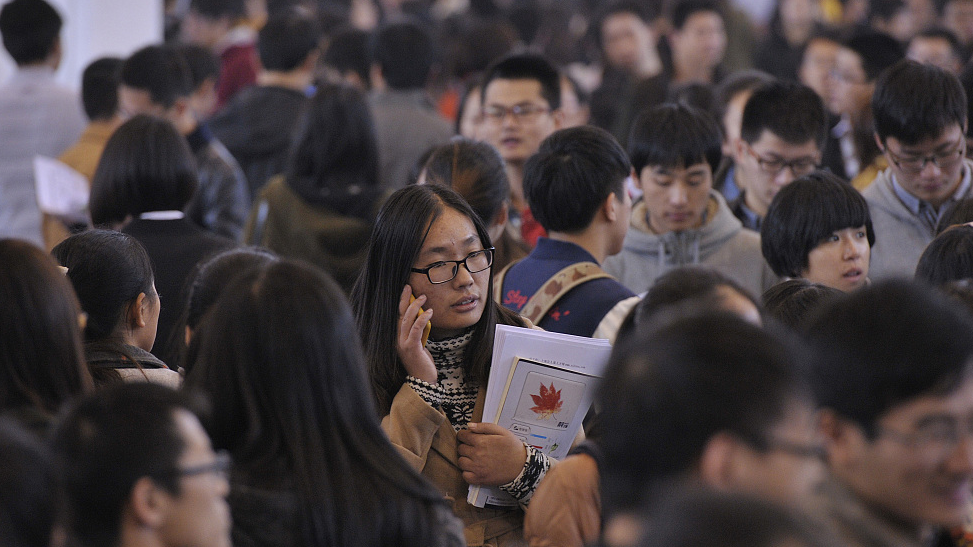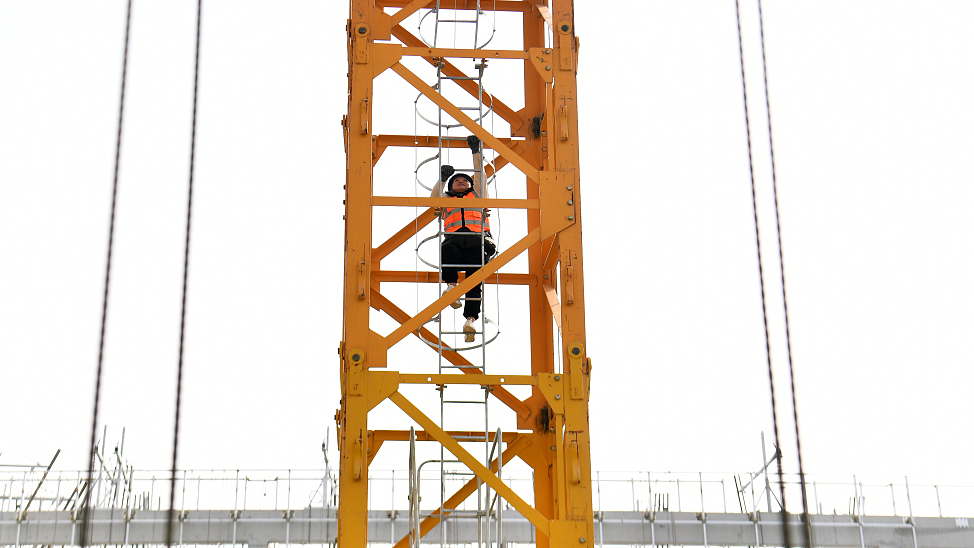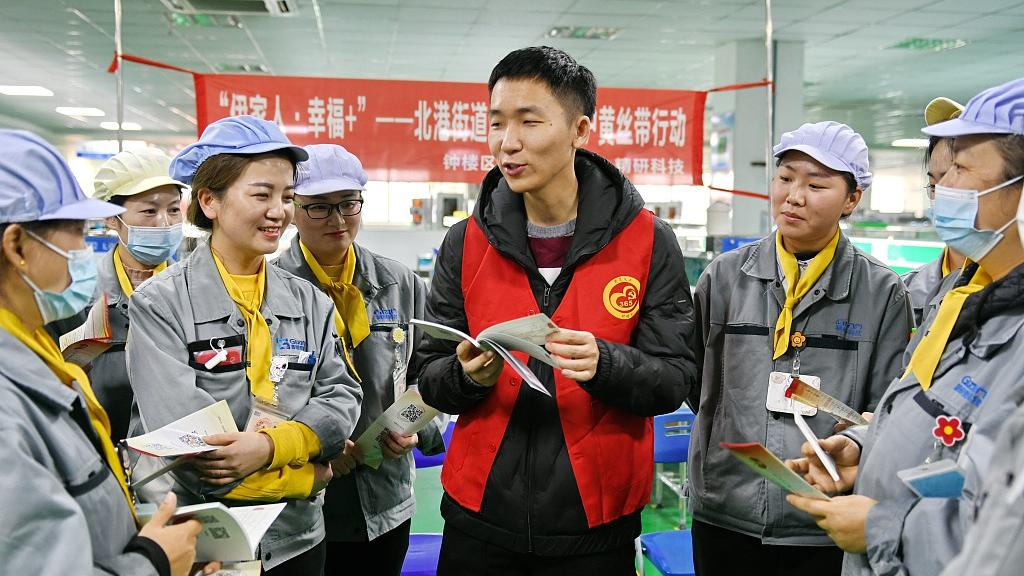
A female job seeker at a job fair in Nanjing, east China's Jiangsu Province, February 2, 2023. /CFP
A female job seeker at a job fair in Nanjing, east China's Jiangsu Province, February 2, 2023. /CFP
Lawmakers and political advisors at this year's Two Sessions – the most important event on China's political calendar – have called for respecting women's choices, promoting gender equality and creating equal environment for women to pursue career development.
The status of women in China has improved with the country's development, but many women still face impediments to personal and career development because of issues such as discrimination based on gender and marital status.
Curbing discrimination
Luo Weihong, a deputy to the 14th National People's Congress, said that it is understandable that companies have concerns that female workers' child-bearing plans may increase their labor cost, but we should develop solutions to solve the predicament.
The heads of some schools and kindergartens in Hangzhou City, east China's Zhejiang Province, told Luo during a visit that they had to suffer staff shortage when female workers went on maternity leave.
"Childbearing should not only be a matter for women alone," Luo said, adding that a range of measures should be taken to offer support, including the provision of paternity leave for men and the establishment of maternity support funds.
The deputy also stressed the importance of providing appropriate subsidies and tax relief to work units with more female employees to ease their employment pressure.
Luo admitted that there is still a long way to go to realize gender equality.
According to a survey by recruitment portal Zhaopin, 61.1 percent of female workers said they were asked about their marital status or plans to have a child during job interviews, while only 21.5 percent of males experienced such questions. Around 23 percent of women said they were unable to secure a promotion at their workplaces because they were considered to be at the ideal age for marriage and having children.

A female worker at a construction site in Xiong'an New Area, north China's Hebei Province, March 8, 2023. /CFP
A female worker at a construction site in Xiong'an New Area, north China's Hebei Province, March 8, 2023. /CFP
Respecting women's choice
Noting how a low marriage rate leads to a decline in birth rate, labor shortage and even affects the sustainable development of society, Luo advised that governments at all levels to not only respect the choice of single women, but also encourage them to have a deeper understanding of marriage and family.
According to Luo, more and more Chinese women are independent and have their own career pursuits instead of relying on their husbands. "This may be one of the results of a highly developed society. I think this is understandable and their choices must be respected," Luo said.
Creating an equal environment
Lin Yi, a member of the 14th National Committee of the Chinese People's Political Consultative Conference (CPPCC), also called for supporting work units with a higher proportion of female employees.
Last year, the Women's Studies Institute of China conducted a survey of 1,043 enterprises in 29 provinces, municipalities and autonomous regions of China to see how women's employment prospects were limited by companies fearing increased costs in case of maternity leave.
The survey's result showed that 25.39 percent of the enterprises admitted that only men were hired or given priority for certain jobs.
Lin said it's time to take positive measures to encourage employers to create an equal employment environment for men and women.

A volunteer tells female workers how to protect their legitimate rights and interests at a factory in Changzhou City, Jiangsu Province, east China, December 11, 2022. /CFP
A volunteer tells female workers how to protect their legitimate rights and interests at a factory in Changzhou City, Jiangsu Province, east China, December 11, 2022. /CFP
Strengthening legal protection
Gender equality and the rights and interests of women are clarified in the Law on the Protection of Rights and Interests of Women, which underwent strategic revisions and took effect on January 1, 2023.
The law ensures that all women equally participate in social life, have access to development opportunities and enjoy the fruits of development.
However, Peng Jing, a member of the 14th National Committee of the CPPCC, said there are still problems such as insufficient legal publicity and insufficient supporting legal mechanisms in implementing the law.
Peng suggested strengthening labor inspections to further eliminate gender discrimination in employment.